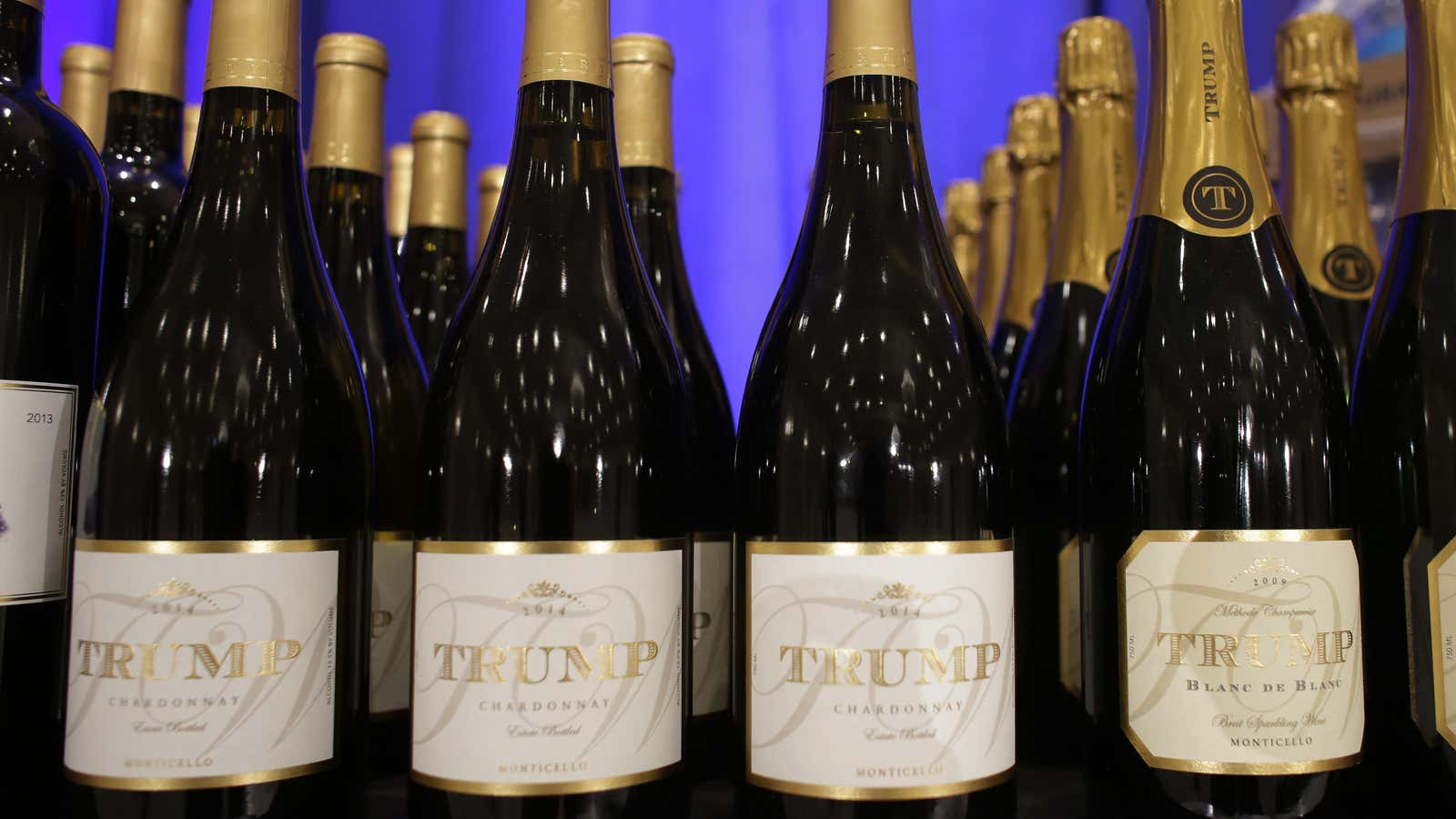In typical Twitter fashion, president-elect Donald Trump on Nov. 30 said he will be leaving “his great business in total in order to focus on running the country.” Trump will discuss the separation at a “major news conference” on Dec. 15, but was quick to note that the law doesn’t actually require him to give up any of his business involvement.
It seems likely Trump will leave the reins of his business empire in the hands of his children, most of whom have also been involved in the presidential transition. But that would still leave the president with a direct family connection to a range of businesses. If the breadth of that involvement feels hard to grasp, worry not—there’s an app for that.
Boycott Trump, an app that lists businesses linked to Trump, was released on Nov. 21 by Democratic Coalition Against Trump, a Democratic-leaning organization founded in May 2015 with the aim of keeping the Donald out of office. Having lost that battle, the group now focuses on creating a broad movement to boycott the president-elect’s businesses.
The app currently features 250 businesses, ranging from real estate companies owned directly by Donald Trump to retailers selling Ivanka Trump’s products to companies in which prominent board members have publicly endorsed Trump. Boycott Trump also lists businesses that have been associated with Trump in the past, for instance as sponsors of The Apprentice, and have not publicly disowned him.
Democratic Coalition co-founder Nate Lerner told Quartz that the list isn’t final: Some companies, like Pay Pal, will be removed in the next update—Peter Thiel is not involved in it anymore—while others may be added as new relationships are uncovered. The app doesn’t include businesses—such as Trump hotels, or Ivanka Trump clothing, for instance—whose affiliation is clear in the name.
Lerner says that, of the companies listed, about half are directly owned (fully or partially) by Trump and his family, or do business with them. These are mostly in real estate and hospitality. The other half includes entities that are only marginally connected to Trump, such as companies with shops or offices in his properties. Many of Trump’s directly owned companies “are not something that the common person can boycott,” Lerner says. The app is intended to signal that any affiliation with Trump is a form of endorsement unless a company publicly states otherwise.
Within a week of its launch, the app was downloaded 80,000 times on iPhone and Android, sending it to a trending spot on iTunes App Store. Lerner attributes that success to a “hunger for accessible information” on the extent of Trump’s conflicts of interest. It looks like he may be right.
